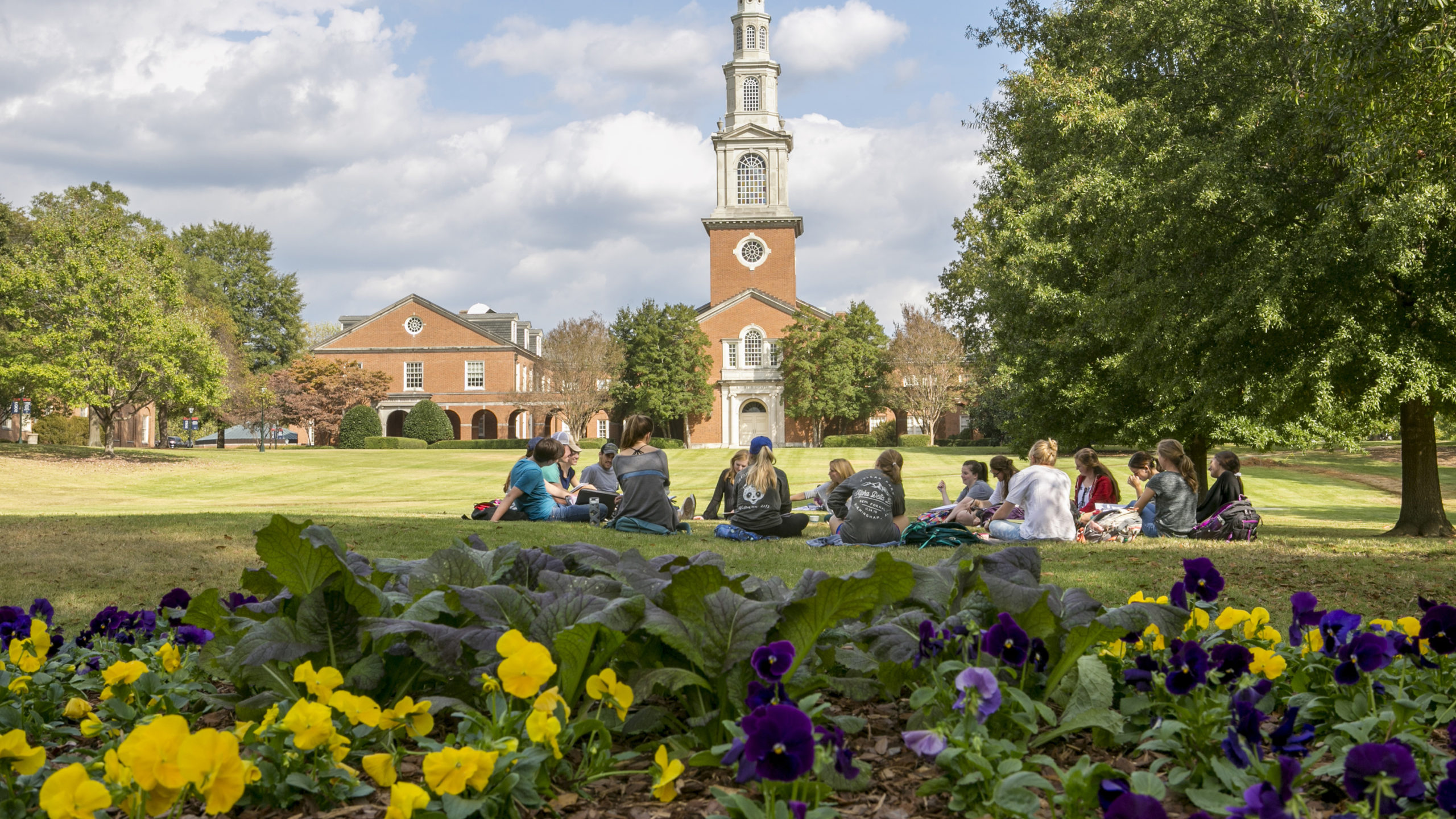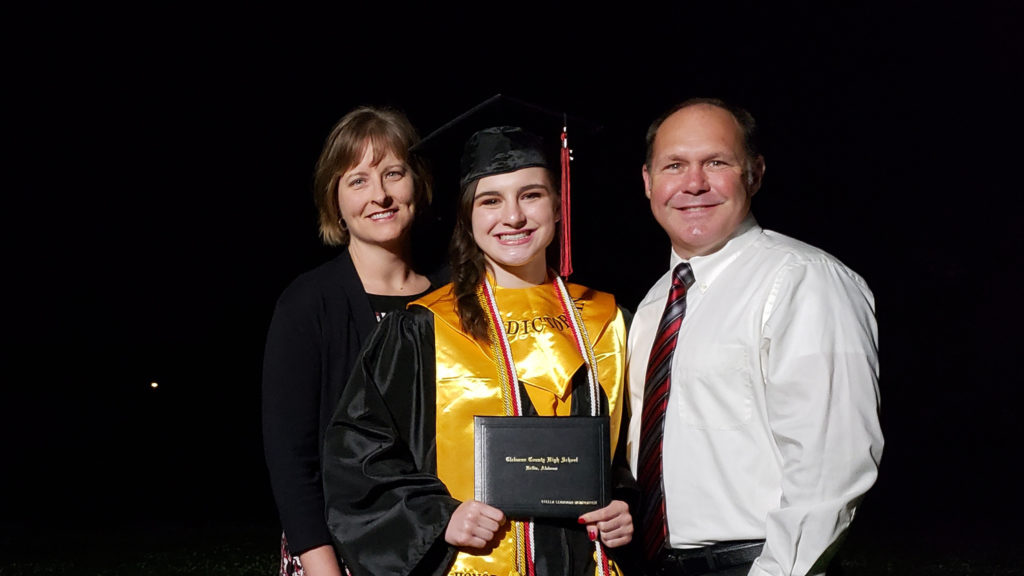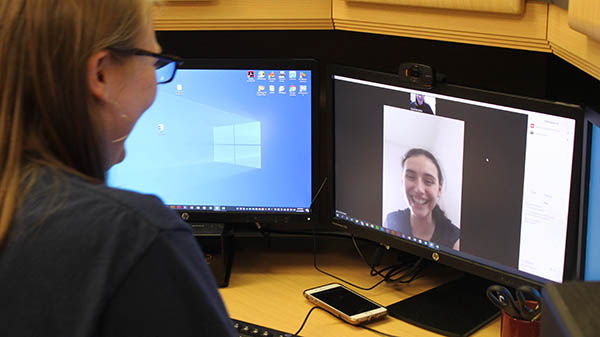Students face many decisions when choosing a college, and Christian students have an extra factor to consider: whether to choose a secular or Christian institution.
Christian educational leaders say there are many benefits to pursuing higher education in a Christian environment. Here are just a few:
An obvious advantage to choosing a Christian college is that most other students are believers. After all, the relationships built in college often turn into lifelong friendships, work relationships or even marriages.
Environment
A faith-based mission also creates an affirming environment, said Paul Akin, dean of the Billy Graham School of Missions, Evangelism and Ministry at Southern Baptist Theological Seminary. He sees several characteristics integrated more smoothly into faith-based higher education institutions.
First, a Christian college or university helps students further develop a biblical worldview by “teaching how the Bible applies to every area and facet of our lives,” he said.
“We want to think and live biblically, and a Christian college can help foster that in our lives,” he added.
Second, he said, it is good for Christians to learn together in community.
Formative season
“Iron sharpens iron,” he said. “A Christian college provides [that] context — to grow and encourage one another in this formative season of life.”
Third, a Christian college experience helps prepare a believer for a life of ministry and service to the church and to the world, so the experience is especially beneficial for those who plan to serve in ministry and/or go to seminary.
“Understanding why we believe what we believe is critical and sets the foundation for the remainder of our lives,” he said, so a Christian college helps “clarify and underscore Christian convictions.”
Another consideration is choosing the best education possible.
Rich Hutchens, associate pastor of First Baptist Church Birmingham, said he chose East Texas Baptist University in Marshall, Texas, for its academic reputation. But the integration of faith and life was “certainly more evident” there too, he recalled.
SBCCalled.com, a website that provides information, resources and training for high school and college students who feel called to ministry, describes the benefits of going to a Baptist college or university this way:
“While there are hundreds of institutions that grant degrees, Baptist colleges and universities offer more than just a degree. They offer an education that values the integration of faith and learning, where students are engaged in the holistic understanding of their discipline grounded in the Scriptures and the faith as understood by Southern Baptists.”
Crucial skills
“The Christian liberal arts tradition encourages the development of crucial skills such as critical thinking, analytical reasoning and problem-solving coupled with a focus upon spiritual and emotional maturation that prepares students for more than a career but a calling.”
Though some students who choose a Christian college have a vocational ministry calling, many do not. Others may be called to ministry later in life. The Christian college experience provides a strong and unique foundation, Hutchens said.
Foundation
“Since some Christian colleges or universities are aware that graduates may not attend seminary, it is possible to gain a foundation for ministry in a Christian institution — biblical studies, Greek/Hebrew, ethics, pastoral ministry — that simply isn’t available in secular schools,” he said.
For those planning to go to seminary and then into full-time ministry, there are other things to consider, and once again, a Christian college checks all the boxes, said Kyle Young, director of admission and alumni relations at Samford University’s Beeson Divinity School. Certain undergraduate majors, missions experiences and service opportunities available at Christian colleges can help pave the way for seminary studies.
“If students are at a school that offers biblical and religious studies or Christian ministry majors, the courses in those majors will help prepare students to begin well at seminary,” Young said. “If students are looking at seminaries that require biblical languages, like Beeson, they should consider taking language courses, whether biblical languages — Greek or Hebrew — or otherwise. … Other good majors for students pursuing seminary are those in the humanities that require reading and writing, for example, history, English, foreign languages, political science.”
For those wanting to go to seminary after college, there really is not an “approved” list of majors, Akin noted.
“We have students who come with degrees in business, accounting, music, history and almost any other major one can imagine,” he said. “Majoring in more ‘secular’ disciplines can be helpful and provide common ground with many people in the church.”
Christian colleges also offer experiences that can be beneficial to those preparing for full-time ministry, including “biblical studies courses in the core curriculum; professors who are better networked with seminaries; and chapel services, cadres or small groups on themes like Christian apologetics or discipleship.”
Akin added that Christian schools often provide missions trips that wouldn’t be available in other schools, noting this could be a way “for students to be exposed to global realities and to experience how God is at work across the world.”
Personal accounts of seminary graduates on the benefits of Christian higher learning
- Paul Akin, dean of the Billy Graham School at Southern Baptist Theological Seminary:
I attended Union University and Southeastern Baptist Theological Seminary.
Sensing a call to full-time vocational ministry, I majored in biblical studies, and that was such a formative and foundational major for me.
During my undergraduate years, my biblical and theological foundations were set, and I was challenged by a biblical worldview.
Going to seminary, I felt very prepared and was able to quickly build on those biblical and theological foundations.
I would not change anything about my college experience. I look back with a great sense of gratitude and joy at all the Lord taught me in those formative years, all the key people who invested in my life and the rich academic and doxological experience I had at Union University.
- Kyle Young, director of admission and alumni relations at Beeson Divinity School at Samford University:
I attended Samford University from 2009 to 2013 and was a double major in history and Spanish.
I had a general love for ministry and cross-cultural relations but did not immediately pursue seminary after graduation.
Instead, I taught high school at an international Christian school in La Paz, Bolivia, for three years.
During that time, I sensed God calling me to attend seminary, so I returned to Samford in 2016 to attend Beeson Divinity School. I graduated from Beeson with my M.Div. in 2019.
I chose to attend Beeson because it was familiar to me and because of its reputation as a school that values mentorship, community and rigorous study of the Bible and theology. At Beeson, my faith was stretched in healthy ways as I encountered new ideas and viewpoints from friends and professors in denominations other than my own Southern Baptist Convention.
I learned to appreciate my Baptist heritage as well as the heritage of other denominations that uphold the authority of Scripture and the centrality of the gospel.
Although many of the theological concepts, Greek and Hebrew were new to me at Beeson, my background in history and Spanish prepared me for the reading, writing and translating the M.Div. requires.
- Rich Hutchens, associate pastor of First Baptist Church Birmingham:
I graduated from East Texas Baptist University with a major in sociology and a minor in religion.
I later attended Southern Baptist Theological Seminary but did not feel then — or now — that my undergraduate work gave me any advantage in seminary studies.
With that in mind, I probably would have focused my undergraduate on a more ‘practical’ degree — one that could provide income during the seminary years — such as nursing, business/accounting or pharmacy. In retrospect, these degrees would also have been helpful on the missions field, where my wife and I spent 27 years of ministry.






Share with others: